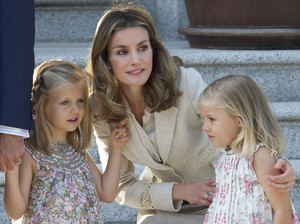Generally once a year the Pope calls together all those involved in the work of each of the Pontifical councils for a plenary session, usually addressing some key item. Today was the Plenary Assembly of the Pontifical Council for the Family
I am pleased to welcome you on the occasion of the Plenary Assembly of the Pontifical Council for the Family, on the occasion of a double XXX anniversary: that of the Apostolic Exhortation Familiaris Consortio, published November 22, 1981 by Blessed John Paul II and the Congregation itself, which he established on May 9 with the Motu Proprio Familia a Deo instituta, as a sign of the importance to be attributed to family ministry in the world and at the same time, as an effective tool to help promote it at every level (cf. John Paul II, Familiaris Consortio, 73). I cordially greet Cardinal Ennio Antonelli, thanking him for the words with which he introduced our meeting, as well as the Bishop Secretary, other employees and all of you gathered here.

The new evangelization depends largely on the domestic Church (cf. ibid., 65). In our time, as in times past, the eclipse of God, the spread of ideologies contrary to the family and the degradation of sexual ethics are intertwined. And just as the eclipse of God and the crisis of the family are linked, so the new evangelization is inseparable from the Christian family. The family is indeed the way of the Church because it is the "human space" of our encounter with Christ. Spouses, " not only receive the love of Christ and become a saved community, but they are also called upon to communicate Christ's love to their brethren, thus becoming a saving community " (ibid., 49). The family founded on the Sacrament of Matrimony is a particular realization of the Church, saved and saving, evangelized and evangelizing community. Just like the Church, it is called to welcome, radiate and show the world the love and the presence of Christ. The reception and transmission of divine love are realized in the mutual commitment of spouses, generous and responsible procreation, in the care and education of children, work and social relationships, with attention to the needy, in participation in church activities, in commitment to civil society. The Christian Family to the extent it succeeds in living love as communion and service as a reciprocal gift open to all, through a process of ongoing conversion supported by the grace of God, reflects the splendor of Christ in the world and the beauty of the divine Trinity. Saint Augustine has a famous quote: "immo vero vides Trinitatem, si caritatem vides ", "If you see charity, yes indeed you see the Trinity " (De Trinitate, VIII, 8). And the family is one of the fundamental places where you live and are educated to love and charity.

